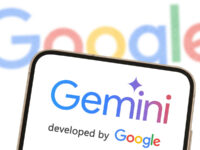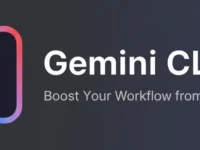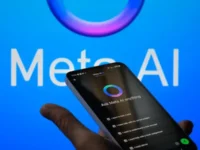Publié : 3 October 2025
Actualisé : 2 weeks ago
Fiabilité : ✓ Sources vérifiées
Je mets à jour cet article dès que de nouvelles informations sont disponibles.
In an announcement that could redefine the web browsing experience, Perplexity, the AI-powered search engine, has made its internet browser, Comet, freely available to all users since October 2nd. Previously reserved for paid subscribers or available by invitation, this initiative marks a bold step in Perplexity’s strategy to directly compete with tech giant Google and its ubiquitous Chrome browser.
Perplexity gained recognition by offering an intelligent alternative to traditional search engines, providing concise summaries powered by large language models (LLMs) such as Sonar, GPT-5, or Claude 4.5. Its stated goal is to become an ‘improved Google,’ where AI scours the web for you and synthesizes information. With Comet, this vision now extends to the entire browsing experience.
🚀 Comet: The Browser for the AI Agent Era
Comet browser is more than just a container for the Perplexity search engine; it is designed as a true ‘AI agent .’ Built on Chromium , Chrome’s open-source foundation, Comet ensures near-total compatibility with users’ existing ecosystem: bookmarks, extensions, and a familiar interface. This strategic decision aims to minimize friction for the millions of users accustomed to Chrome.
What sets Comet apart is its deep integration of artificial intelligence. Rather than opening a new tab for every search or query, Comet integrates Perplexity as the default search engine and offers innovative native functions. Three dedicated buttons provide instant access to AI capabilities, such as summarizing the current web page or invoking an intelligent assistant in a sidebar.
The integrated assistant goes beyond simply answering questions. It is capable of performing complex tasks: opening multiple tabs, conducting in-depth searches, and even filling out form fields at the user’s request. Once the task is completed, it provides a detailed summary of its actions and the information gathered, transforming passive browsing into a proactive interaction with the web.
📈 An Ambitious Challenge in a Dominated Market
Despite its technological promises, Comet is launching into a market overwhelmingly dominated by Google Chrome, which holds a significant market share and an extremely loyal user base. The imminent arrival of Gemini, Google’s AI, directly integrated into Chrome, also poses a significant challenge. Perplexity will need to convince users of the superiority of its approach compared to a solution that is integrated and deeply embedded in the Google ecosystem.
The competition doesn’t just come from Google. Other AI giants, like OpenAI, have also considered launching their own browser but have so far resisted the temptation, aware of the difficulties in dethroning such a well-established player. The browser market is known for its rigidity and user loyalty, making any breakthrough attempt particularly arduous for a startup, no matter how innovative.
“Our goal with Comet is to fundamentally shift how users interact with the web, moving from passive searching to active intelligence. We are putting the power of AI directly into their hands.” – A hypothetical statement from a Perplexity spokesperson, illustrating the company’s vision.
💡 The “Comet Plus” Strategy and Media Support
Beyond Comet’s free access, Perplexity has also announced an ambitious project: Comet Plus, a paid version of the browser. This offering aims to bypass media paywalls, allowing subscribers to access premium articles from major publications such as Le Figaro, Le Monde, CNN, Fortune, The Washington Post, and The Los Angeles Times.
What makes this initiative particularly relevant is the underlying economic model: Perplexity commits to remunerating media outlets each time a user accesses their articles via its AI. This approach contrasts sharply with the practices of some AI and search players who have been criticized for their use of media content without adequate compensation. Perplexity thus positions itself as an ally of publishers, seeking to transform AI uses in an ethical and sustainable manner, already having agreements with Numerama and Frandroid.
This dual strategy, free for the basic AI browser and paid for premium content access, highlights Perplexity’s desire to build a sustainable and respectful ecosystem while offering cutting-edge features to users. It’s a move that could redefine the relationship between AI, content aggregators, and original creators.
🔮 Future Perspectives and Stakes
While promising, Perplexity faces financial and structural challenges. The company is currently losing money, and its ability to establish itself alone against Google remains uncertain. Rumors of a potential acquisition by Apple have circulated, suggesting that the support of a tech giant could be crucial for Perplexity’s long-term success. Analysts believe a partnership or acquisition could give Perplexity the resources and visibility needed to truly challenge market leaders.
Comet’s success will depend on user adoption. Its free access is a major asset, but loyalty to Chrome and the power of the Google ecosystem are significant obstacles. Perplexity’s ethical approach to media with Comet Plus could attract a niche of users concerned about information quality and supporting content creators, but will this be enough to break established habits?
In summary, Perplexity, with its Comet browser, is not just launching a new product; it’s proposing an alternative vision for web interaction, centered on artificial intelligence and respect for content creators. It remains to be seen whether this ambitious vision will find its audience and if it can truly shake Google’s hegemony in the digital landscape.
❔ Frequently Asked Questions
What is the main difference between Comet and Chrome, given that it is based on Chromium?
What specific AI features does the Comet browser offer?
Why did Perplexity make Comet free, and what is its goal?
What does the term ‘AI agent era browser’ mean for Comet?
🎥 Explanatory Video
Video automatically selected to enrich your reading





















0 Comments